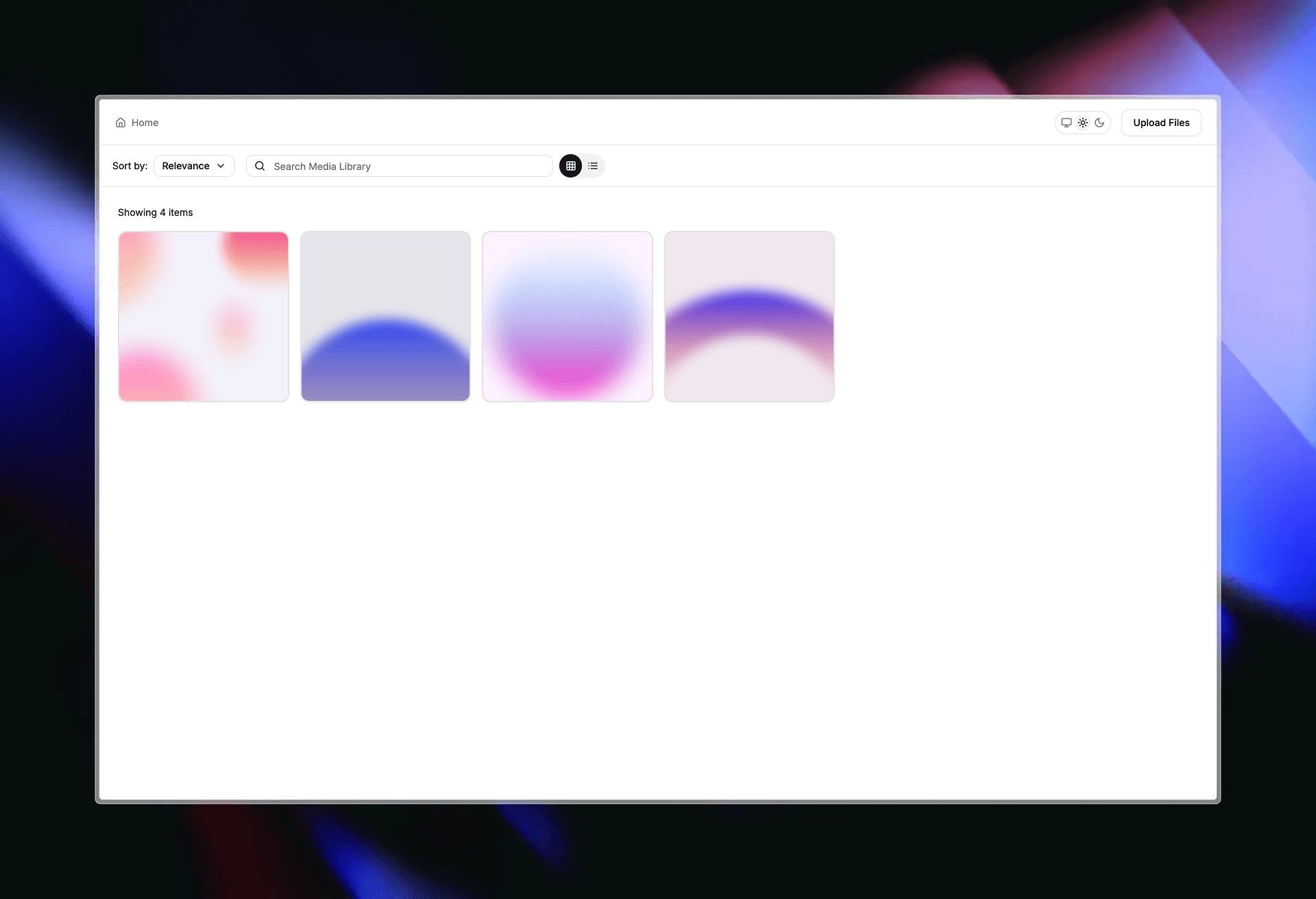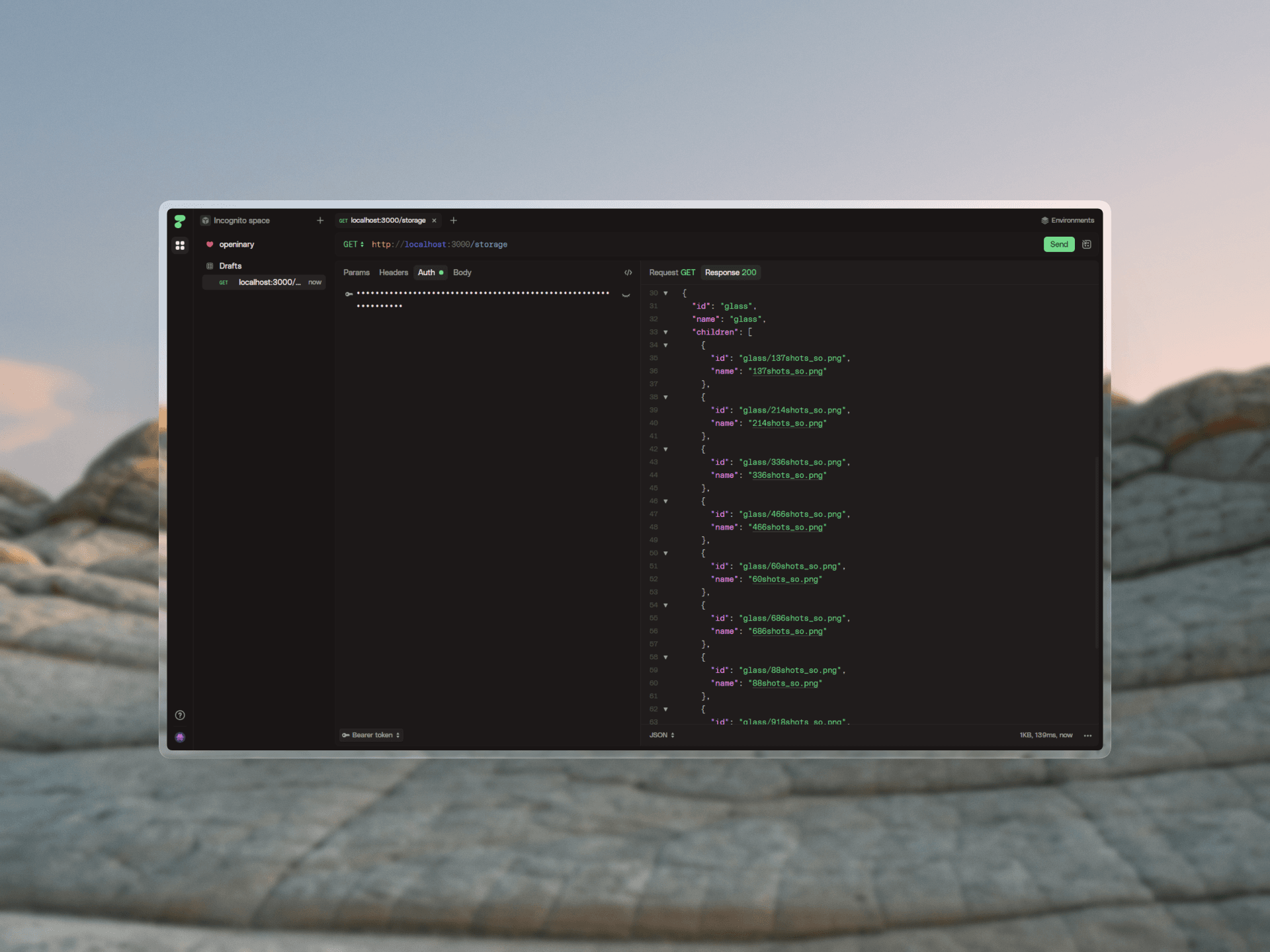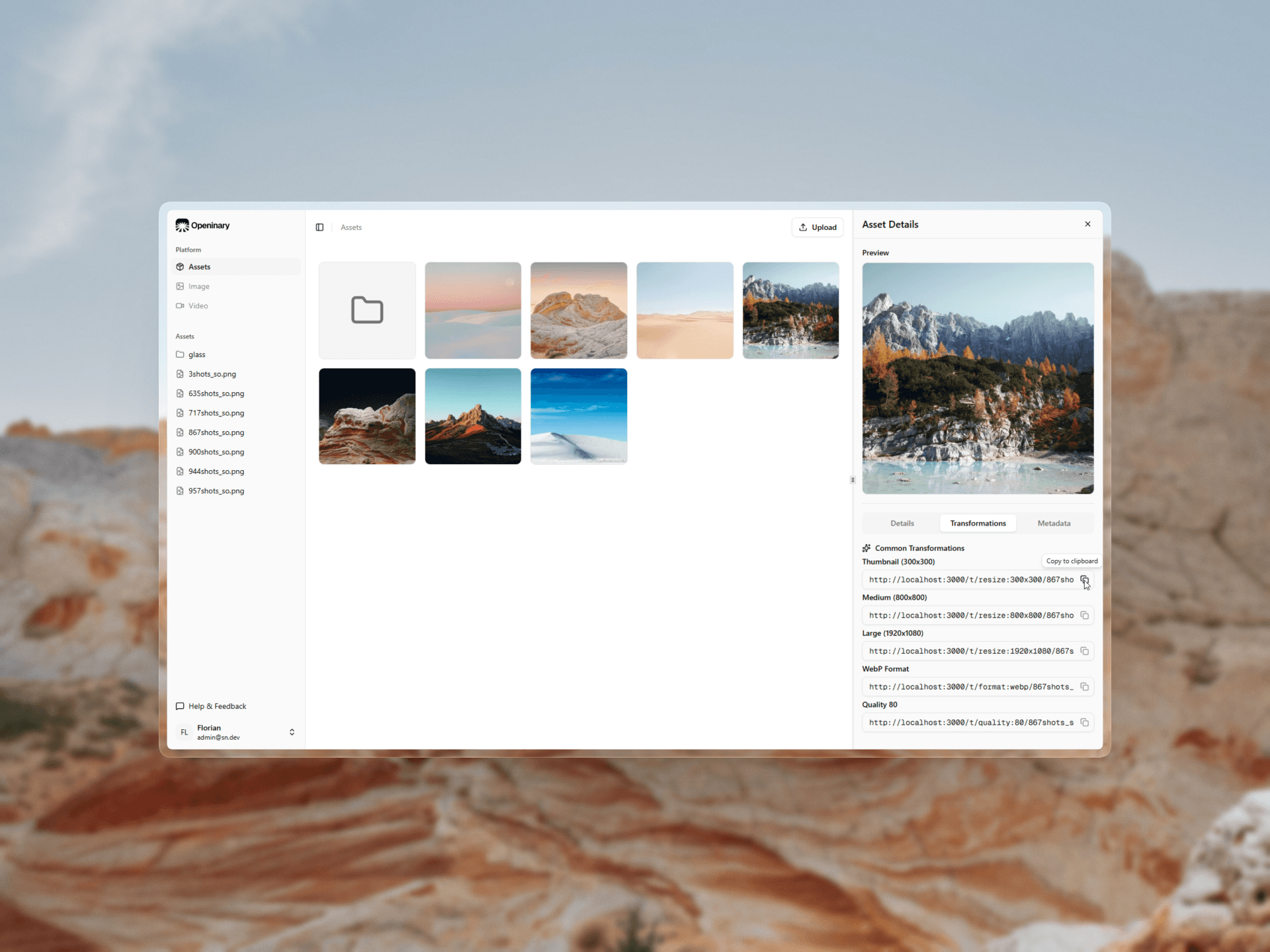Open-source, self-hostable alternative to Cloudinary
Store your medias in an environment you trust. Fast, cheap, and open.
- Self-hosted
- No vendor lock-in
- Works with S3/R2/MinIO



Built for developers
Designed with developers in mind. Simple APIs, powerful features, full control.
Upload via API
Simple REST API for uploading media files programmatically
Transformations via URL
Transform images and videos on-the-fly using URL parameters
Edge delivery
Fast content delivery optimized for global performance
S3-compatible
Works seamlessly with S3, R2, MinIO, and other compatible storage
How it works in 3 steps
Get up and running with Openinary in minutes. No complex setup required.
Clone & Run
Get started with a single command
Upload your assets
Through the API or the UI
Transform your assets
They are now optimized for the web!
Works with your storage
Use your existing S3-compatible storage infrastructure. No need to migrate or change providers.
Choose the solution
that fits you best
Self-host our free open source version on your infrastructure, or go fully managed with our cloud platform.
Self-hosted
Free foreverDocker-based self-hosting
- Upload media through the API
- UI for uploads + previews
- Works with any S3-compatible storage
- Transform images and videos on-the-fly via URL
- MIT License
Cloud
TBDWe handle the hosting
- Managed Infrastructure
- Automatic Updates & Maintenance
- Enhanced Performance Monitoring
- Priority Support
- Advanced Analytics Dashboard
- Custom Domain Management
- Team Collaboration Features
- Advanced Security Features
- SLA Guarantees
Frequently
Asked Questions
Everything you need to know about deploying and using Openinary.
How do I deploy Openinary with Docker?
Openinary is fully Dockerized and can be deployed on any infrastructure. No external dependencies required - it works with any S3-compatible storage.
- Clone the repository and configure environment variables.
- Run docker-compose up or deploy to your preferred container platform.
- Configure S3-compatible storage (like Cloudflare R2) - detailed instructions in our documentation.
What are the costs of self-hosting?
The self-hosted version is completely free under MIT license. You only pay for your own infrastructure costs (server, storage). Optionally use S3-compatible storage like Cloudflare R2 for optimized performance. For most projects, this typically costs just a few dollars per month.
How does Openinary compare to Cloudinary?
Openinary provides the core features of Cloudinary but as an open source, self-hostable solution. You get image transformations, API uploads, and edge delivery without vendor lock-in or enterprise pricing.
- Full control over your media infrastructure
- No usage limits beyond what you configure
- Transparent, MIT-licensed codebase you can modify/contribute to
When will the Cloud version be available?
We're currently focused on adding features to the open source version. The managed Cloud offering is planned for the future, but we don't have a specific timeline yet. Follow our GitHub repository for updates on development progress.
What image and video formats are supported?
Openinary supports common web formats (JPEG, PNG, WebP) for images and video processing via FFmpeg. On-the-fly transformations include resizing, cropping, format conversion, quality optimization, and video transcoding. All transformations happen via API for maximum flexibility.
Join the Waitlist
Be the first to know when our cloud platform is available. Get updates on new features and early access.